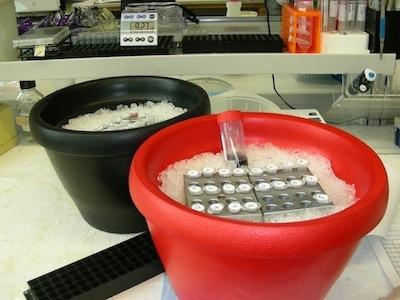Breadcrumb
- Home
- Research
Research

The human genome is composed of ~3,000,000,000 base pairs of DNA. In order to grow, a human cell must precisely duplicate this entire genome each cell cycle and continuously protect it from damage or modification. Defects in DNA replication or repair result in higher rates of mutation, chromosome instability and have a direct role in a number of human diseases. Impaired responses to DNA damage and defects in DNA replication directly contribute to the development of cancer and are responsible for genetic diseases such as Fragile X and Xeroderma Pigmentosum.
Replication protein A (RPA) is a multi-functional, single-stranded DNA-binding protein composed of subunits of 70-, 32- and 14-kDa. RPA is essential for DNA replication, DNA repair, recombination and coordination of the cellular response to DNA damage. RPA is composed of six structurally conserved DNA binding domains that are all essential for life. The functions of these domains are poorly understood. RPA is phosphorylated during S-phase and in response to DNA damage. Recent studies have shown that RPA hyper-phosphorylation modulates RPA activity and plays a role in the cellular response to DNA damage; however, the mechanism of this regulation is also poorly understood.
Our current research focuses on utilizing a combination of in vitro and in vivo approaches to define functions of the domains of RPA and to elucidate the role of RPA in regulating cellular DNA metabolism. We are also studying the mechanism by which phosphorylation of RPA modulates the cellular response to DNA damage. We use variety of experimental approaches in our research. We use molecular and genetic approaches to generate specific mutant forms of RPA. Biochemical and structural analyses are used to define RPA interactions with DNA substrates and protein complexes found in cellular DNA metabolism. We have also have recently established a system that uses RNAi and plasmid directed expression of exogenous genes to examine the activity of wild-type and mutant RPA genes in human cells. These studies will lead to a better understanding of the molecular mechanisms of cellular DNA metabolism and will contribute to developing new treatments for diseases associated with defects in DNA repair or replication.